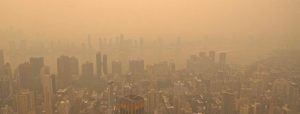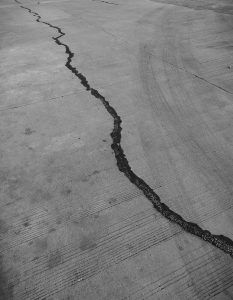With air quality index (AQI) hovering between ‘very poor’ and ‘severe’ categories in the Delhi-NCR region this month, the Supreme Court on Monday directed the Centre to call an emergency meeting to discuss orders that it can pass to effectively deal with problem.
An AQI between zero and 50 is considered ‘good’, 51 and 100 ‘satisfactory’, 101 and 200 ‘moderate’, 201 and 300 ‘poor’, 301 and 400 ‘very poor’, and 401 and 500 ‘severe’. Air pollution increases the risk of respiratory infections, heart disease and lung cancer, according to World Health Organization. On Monday, Delhi recorded an AQI of 342 for the past 24 hours.
What causes Delhi’s air pollution to peak in winters?
Here is how some other cities across the world fared on the AQI index on November 8, as per data provided by the IQAir, a Switzerland-based climate group that is also a technology partner of the United Nations Environmental Program (UNEP).
1. Oslo, Norway
AQI – 3 (Good)
PM 2.5 count – 0.7 µg/m³
2. Melbourne, Australia
AQI – 5 (Good)
PM 2.5 count – 1.3 µg/m³
3. Vancouver BC, Canada
AQI – 7 (Good)
PM 2.5 count – 1.7 µg/m³
4. Salt Lake City, USA
AQI – 11 (Good)
PM 2.5 count – 2.7 µg/m³
5. Munich, Germany
AQI – 11 (Good)
PM10 count – 10 µg/m³
6. Seattle, USA
AQI – 12 (Good)
PM 2.5 count – 2.9 µg/m³
7. Lyon, France
AQI – 12 (Good)
PM10 count – 9.6 µg/m³
8. Brussels, Belgium
AQI – 13 (Good)
PM 2.5 count – 3.2 µg/m³
9. Amsterdam, Netherlands
AQI – 14 (Good)
PM 2.5 count – 3.3 µg/m³
10. Portland, USA
AQI – 11 (Good)
PM 2.5 count – 2.7 µg/m³
Air pollution has become a major public health concern in India, with at least 30.7% of deaths in the country every year attributed to people breathing toxic air. A February 2021 study by a team of scientists including from the Harvard University and University College London pegged the number of deaths due to air pollution in India at 2.5 million, nearly double that of previous estimates. Another study conducted by University of Chicago’s Energy Policy Institute estimated that people living in north India will lose more than nine years of life expectancy if pollution levels of 2019 persist.
“Average life expectancy across Bangladesh, India, Nepal and Pakistan would be 5.6 years higher if pollution concentrations complied with the WHO guideline,” it said.
Three Indian cities– Delhi, Kolkata, and Mumbai- are among the ten most polluted cities worldwide, according to IQAir.






